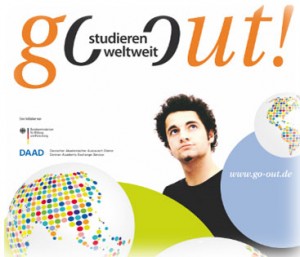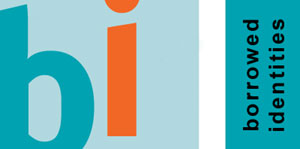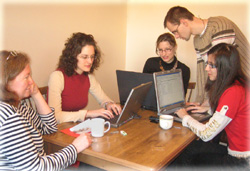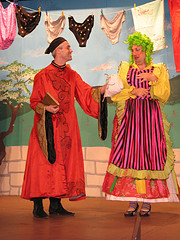 In today’s show, we put our emphasis on working cultures, both, in digital work contexts and in face-to-face team work.
In today’s show, we put our emphasis on working cultures, both, in digital work contexts and in face-to-face team work.
Whether you prefer to work in a hierarchical context or whether you prefer to work collaboratively – we sometimes end up in workplaces which do not leave the choice to us. Are you aware of the working culture that surrounds you? Do you appreciate it or would you change it if you could? Do you notice that you have an impact on this culture, too?
absolutely structured:
We hear about different email cultures and discover that yes – your email may show your personal writing style – but that your email also says a lot about the working culture of your company or your institution. Our interviewees fill us in on their opinions regarding the perfect email. We learn that signals which indicate whether the message is well structured and can easily be read and dealt with are quite important and that preference is often given to those messages which have a “speaking” subject line.
absolutely international:
Different working cultures in face-to-face teamwork are explored. Jean Lennox of the University of Applied Sciences in Mönchengladbach, Germany, reports about an international excursion with university students to Posnan, Poland, which confronts them with the difficulties of working in groups of European students from various countries. We learn that intercultural tests of what we expect of the working cultures of other countries can bring up interesting results.
absolutely mobile:
Nora Müller, who is going to the Netherlands for her practical training, gives us some insights into her preparations for her stay abroad and tells us that she believes that going to a neighboring country in Europe is still a big step.
Dr. Cruickshank from Scotland and Clementina Poposka from Macedonia came to Germany as lecturers under the “teaching staff mobility” program. We get to hear what they hope to gain from their academic mobility and in which way universities in their home countries differ from what they experienced during their visit.
The next show will be coming to you on 19 September from Anne Fox in Denmark.
So long…stay tuned!
The host of this show is: Dr. Laurent Borgmann
Assistant Editor: Jan Warnecke




 absolutely student-centred
absolutely student-centred Absolutely Educational The main part of this show is devoted to the impressions of two of the teachers who facilitated workshops as part of the ‘Borrowed Identities’ project which brought over 30 students together from Hungary, Germany, the UK, Spain and Lithuania on the west coast island of Achill in Ireland. How did the teachers manage these multi-cultural groups? Were there language problems? Listen as Scott de Francesco from the USA and Dainora Maumevičienė from Lithuania describe the progress of the groups as the week wears on. You can find out more about the project and what went on by reading the
Absolutely Educational The main part of this show is devoted to the impressions of two of the teachers who facilitated workshops as part of the ‘Borrowed Identities’ project which brought over 30 students together from Hungary, Germany, the UK, Spain and Lithuania on the west coast island of Achill in Ireland. How did the teachers manage these multi-cultural groups? Were there language problems? Listen as Scott de Francesco from the USA and Dainora Maumevičienė from Lithuania describe the progress of the groups as the week wears on. You can find out more about the project and what went on by reading the 


